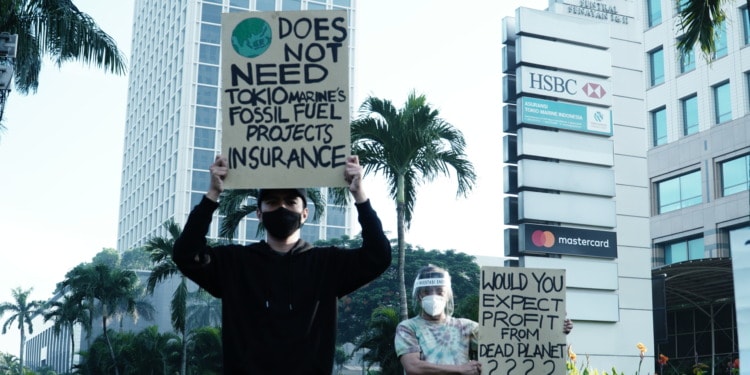In a proactive move to address the escalating risks posed by climate change, the Net-Zero Insurance Alliance (NZIA) was launched in 2021 by the United Nations. This collaborative initiative brought together insurance companies committed to achieving net-zero greenhouse gas emissions in their underwriting and investment activities.
The primary goal of the Net-Zero Insurance Alliance is to mobilize the insurance industry’s significant influence and resources to support the global transition to a low-carbon economy.
However, on May 30, three companies announced their withdrawal from the alliance, bringing the number of pull-outs since March to 13, almost half of all members, amongst them Loyds, AXA, Sompo and Allianz.
Most of the companies stepping back from the Alliance seem to have the same motivations: the risk of being sued for anti-trust violations, an understandable concern in light of recent events.
After leaving the alliance in March, Joachim Wenning, CEO of Munich Re, clarifies his decision in a statement: “In our view, the opportunities to pursue decarbonization goals in a collective approach among insurers worldwide without exposing ourselves to material antitrust risks are so limited that it is more effective to pursue our climate ambition to reduce global warming individually.”
In recent months, initiatives to include environmental, social and governance (ESG) factors in decision making processes have encountered substantial political resistance within the United States, with a Republican-dominated Congress making efforts to overturn an ERISA rule on ESG, which President Biden swiftly vetoed (his first veto). The Republican-led states are leveraging their legislative and budgetary influence to enact anti-ESG legislation, exerting control over matters within their jurisdiction.
To become members of the Net-Zero Insurance Alliance, companies must sign a statement of commitment to align their operations with the Paris Agreement goals and work towards achieving net-zero emissions by 2050.
In addition to having to change their operations to reduce emissions, signatories also need to support the “implementation of corporate disclosure frameworks relevant to the net-zero transition and the insurance industry” as well as to encourage their clients to work toward achieving net-zero emissions, among other things.
Related Articles: How Climate Change Is Affecting the Insurance Industry | “Woke Capitalism” — the Latest Disinformation Campaign in America | Do S&P 500 Companies Align with ESG Criteria from MSCI and Impakter’s Index? | Why You Should Invest Sustainably
The problem, 23 U.S. state Attorneys General told NZIA members in a letter last month, is that the alliance’s targets and requirements “appear to violate both federal and state antitrust laws.”
Dated May 15, the letter accuses NZIA insurers of working together “to advance an activist climate agenda,” which the attorneys say is having “serious detrimental effects” on the people in their states.
What he attorneys wrote in their letter, addressed to 28 insurers from the Net-Zero Insurance Alliance was as here stated:
“The push to force insurance companies and their clients to rapidly reduce their emissions has led not only to increased insurance costs, but also to high gas prices and higher costs for products and services across the board, resulting in record-breaking inflation and financial hardships for the residents of our states.”
The letter also informed insurers of the attorneys’ intentions to carry out an investigation into potential antitrust law breaches, requesting documents regarding companies’ commitment to reducing emissions and giving them a month to respond.
“The ESG movement has spread to every corner of the world’s financial and energy sectors, and unsuspecting Americans are paying the price. Insurers have an obligation to protect the interests of their clients, not advance a radical environmental agenda,” Utah Attorney General Sean Reyes said.
Update: At least seven members of the Net-Zero Insurance Alliance (NZIA), have left the organization, because of commitments to an activist climate agenda. AG Reyes is helping fight the ESG movement. https://t.co/V7xl8GLf6R
— Office of the Utah Attorney General (@UtahAG) May 31, 2023
In response to such accusations, NZIA released a statement on April 12, saying: “We are monitoring developments. In general, we believe in the power of effective partnerships to drive decarbonisation. The UN-convened alliances are considered as world-leading in their efforts to mitigate climate change and to build climate resilience.”
Moreover, according to legal experts, establishing a legal argument for violating antitrust laws would not be so straightforward. And the NZIA has sought legal counsel to ensure compliance with regulations when establishing criteria for its members. Nevertheless, what might be a real worry for insurers is to be getting involved in a legal fight with the US Republicans.
Although all the companies that left the alliance were quick to reassure the world of their continued efforts to achieve carbon neutrality, this “latest form of climate denial,” as the Sierra Club called it, could be costing the Planet dearly.
As Dame Inga Beale, former Lloyd’s of London CEO, stated:
“The insurance sector cannot back away from their responsibility to try and meet those Paris Agreement climate targets.”
Nevertheless, it is necessary for these companies to be able to operate in an environment that is safe for their business. Broadening and improving guidance for companies that collectively want to engage in the fight against climate change is crucial.
The UK’s Competition and Markets Authority has started this process with their draft guidance on environmental sustainability agreements, published on April 28, 2023.
It would appear that the European Commission is also working on the matter, with a revised guidance plan expected to come into force by July 2023 to assist companies pursuing sustainability objectives.
As reported by the Energy Monitor, a European Commission spokesperson says that this guidance will take a “balanced approach to ensure that the antitrust rules are not seen as an obstacle to genuine sustainability initiatives (which, in many cases, may not restrict competition or not appreciably), while protecting competition and consumers against greenwashing.”
Insurance companies play a key role in assessing and managing risks associated with climate change. It is fundamental that such companies are not left to themselves but that they continue to for a stronger adaptation to meet the challenges of a changing climate, as the NZIA aims to do.
By committing to net-zero emissions, these insurers are not only mitigating their own contribution to climate change but also signaling to the world their commitment to supporting the transition to a sustainable future.
A strong and quick response to a problem such as this one must be immediate; the road to a greener economy is already too long to allow for steps backwards.
Editor’s Note: The opinions expressed here by the authors are their own, not those of Impakter.com — In the Featured Photo: Actions in Jakarta against Tokio Marine, one of the former members of the NZIA. Featured Photo Credit: Insure Our Future.









